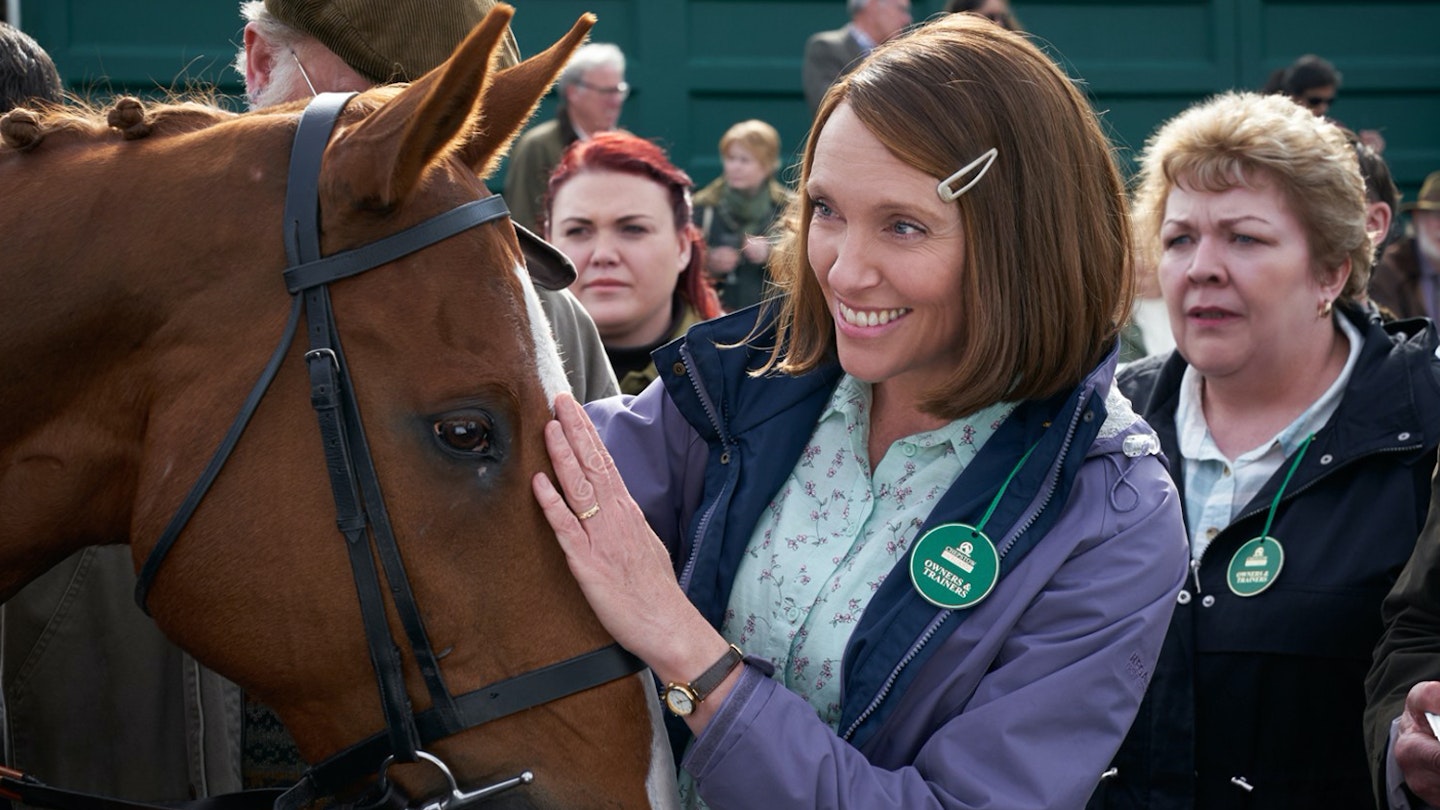Dream Horse fits snugly into a certain type of modern Brit flick. In previous incarnations, a plucky band of no-hopers have won the day by stripping (The Full Monty), playing in a brass band (Brassed Off), getting naked for the W.I. (Calendar Girls), forming a male synchronised-swimming team (Swimming With Men) and singing sea shanties (Fisherman’s Friends). Euros Lyn’s film is the formula as advertised, but this time centres on a syndicate that raises a thoroughbred horse to become a champion. It may be based on a true story — it has already been retold in a documentary, Dark Horse — but it’s the stuff of fairy tale, broadly but winningly told.
This is Toni Collette’s film, giving Jan’s rejuvenation (and the film) an emotional weight.
Set in the depressed Welsh mining town of Cefn Fforest, it centres on Jan Vokes (Toni Collette), a woman pulling down two jobs— a check-out worker at the Co-op and a bartender — to make ends meet. With husband Brian (Owen Teale) incapacitated with arthritis and her children having flown the nest, Jan becomes interested in raising a racehorse which could be financially fruitful and fill a hole in her disenchanted life. Buying a brood mare, Jan and Brian, with the help of tax advisor Howard (Damian Lewis), start a syndicate that gives screenwriter Neil McKay the perfect opportunity to create a gang of one-note comedy relief (Karl Johnson’s old drunk, Siân Phillips’ widow). When a foal is born, the villagers optimistically christen the horse Dream Alliance and enlist a trainer (Nicholas Farrell), and suddenly the humdrum town has a glimmer of hope.
What follows is a predictable round of victories (the racing scenes are well done, highlighting the high level of risk in jump racing), mini defeats, culture clashes (salt-of-the-earth people in posh hospitality), domestic struggles (Howard’s money arguments with wife Angela, played by Joanna Page) and pop-music montages. It couldn’t be more on the nose — the story is often delivered in dialogue — and there isn’t a surprise in the entire running time. Lewis and Teale add textures to potentially trite roles, the former etching a man beaten down by a soul-crushing job who finds joy in backing horses, the latter as a man who rekindles his life vicariously through his wife’s new-found passion. But this is Collette’s film, the actor giving Jan’s rejuvenation (and the film) an emotional weight and centre that elevates the pat material. She turns a by-the-numbers sports-underdog flick into something genuinely affecting.
